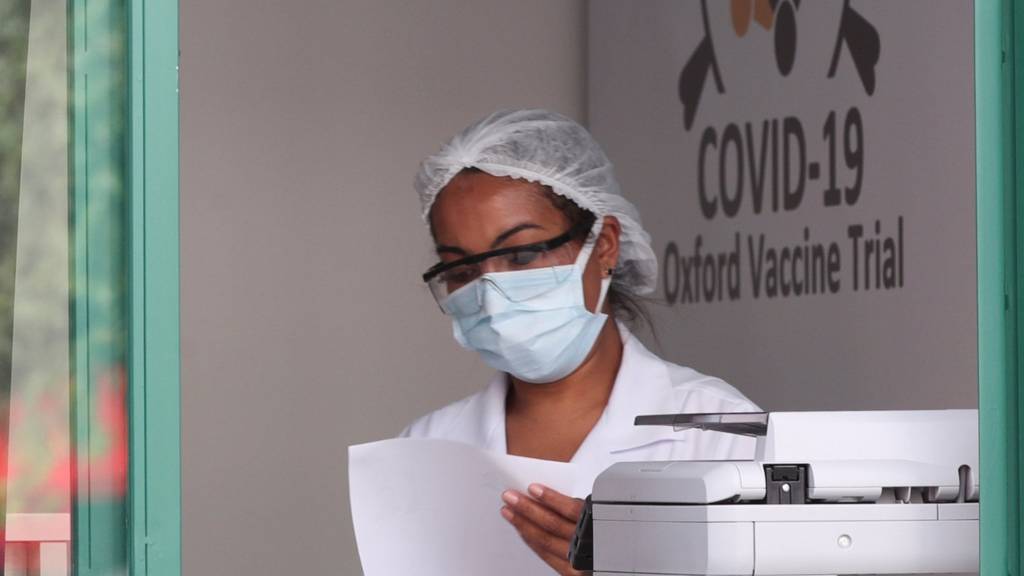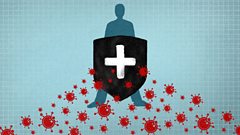


19,473
viewing this page
Related Video and Audio















RTL
Got a TV Licence?
You need one to watch live TV on any channel or device, and BBC programmes on iPlayer. It’s the law.
Find out more
Live Reporting
Edited by Claire Heald
All times stated are UK
- mandatory mask wearing because of Covid-19 has been part and parcel since the beginning of the year.
Thousands have taken to China’s Facebook-equivalent Sina Weibo, mocking resistance in England towards masks as a perceived restriction of freedom, even though wearing one will become mandatory in shops and supermarkets from 24 July.
It comes at a time when relations between China and the UK are especially strained, with the UK terminating its agreement with Chinese tech giant Huawei for 5G infrastructure last week, and the UK government changing its extradition arrangements with Hong Kong.
“Let them watch the ‘freedom’ they value collapse,” one Weibo user says, and many speculate resistance could lead to a second wave in the country.
Others joke the English are being brainwashed by conspiracy theories. “No masks, no 5G, no vaccines=no lives,” one says. Some call the activists “apprentices of [US President] Trump”.
You can read more about the different attitudes countries have to masks here.
The magazine’s circulation had fallen to 28,000 per month from a peak of 200,000 in 2001.
Founded in 1986 by Mark Ellen and David Hepworth, Q arrived at the same time as the CD revolution took off – and its glossy, aspirational format chimed perfectly with the times.
Its hefty and comprehensive reviews section not only covered new releases, but the copious re-issues that were starting to appear as record labels plundered their archives to bolster the new format.
Read more here.
He added that now, “real world” trials must be done on a larger scale. There are 23 potential vaccines in development thus far.
“But it is good to see more data and more products moving into this very important phase of vaccine discovery.”
WHO chief Dr Tedros Adhanom Ghebreyesus also emphasised that any successful vaccines must be accessible to all.
He said many countries are seeing the advantages of making the vaccine “a global public good”, but some are “going the reverse direction”.
“When there is no consensus, it could be actually owned by those who have money and those who cannot afford it may not have access to the vaccines.”
The director-general also said that while vaccine research continues, “we have to save lives now”.
“We must continue to accelerate vaccine research while doing more with the tools we have at hand.”
It comes after the Department of Health has ordered a review into the UK-wide daily death statistics, after concerns that figures contributed by England may include deaths which occur months after a positive test. Other UK nations have a 28-day cut-off point.
But Public Health England is continuing to make the figures available on the coronavirus data dashboard. It says that about 4,000 of the 45,000 deaths occurred after more than 28 days, and only 2,000 of those were not attributed by the recording doctor to Covid-19.

Copyright: BBC

Copyright: BBC

Copyright: BBC
About 23% of the total number of cases were reported in just the last week, the Tampa Bay Times reports.
In an interview aired on Sunday, US President Donald Trump told Fox News: “We have embers and we do have flames. Florida became more flame-like, but it’s – it’s going to be under control.”
More on Florida:
- What’s behind the new US outbreaks?
- How did Florida get so badly hit by Covid-19?
“It’s not that brave because I trust the people involved. It’s also not selfless because if we find a vaccine, I will benefit just as much as anybody else,” said Lydia. “If we get a vaccine I’ll be able to hug my mum again, and that’s really worth it for me.”
What are the next steps for Oxford’s vaccine trials?



James Gallagher
Health and science correspondent, BBC News
These results from the Oxford vaccine trial are exciting, but
this is only the first hurdle. It is still not a vaccine we can say “works”.
It is great news the vaccine can induce an immune response, including both antibodies that attack the virus and
T-cells, which hunt out and kill cells infected by the virus.
But we do not know what level of
immune response is needed to protect people from coronavirus. That is why
further research is still needed.
The answers at the moment are
unlikely to come from the UK as there is not enough coronavirus doing the
rounds to prove whether the vaccine is making a difference.
The Oxford team already has
trials under way in South Africa and Brazil and there are plans for one in the
US too.
However, it may yet require
“challenge trials” in which people are vaccinated and deliberately infected
with the virus to see how effective it is.
Read more here.
PHE has said that about 4,000 of the UK’s 45,000 reported deaths happened more than 28 days after a test, the cut-off point for coronavirus deaths in Scotland, Wales and Northern Ireland. Of those, about 2,000 deaths were not blamed on coronavirus by the recording doctor.
Disney has been criticised for reopening as Florida grapples with one of America’s largest outbreaks of Covid-19. But the entertainment giant has defended its decision.
“Covid is here, and we have a responsibility to figure out the best approach to safely operate in this new normal,” said Josh D’Amaro, Disney’s theme park chairman, in an interview with the New York Times.
The Ministry of Health has confirmed a total of 153 Covid-19 cases, 49 of which happened after the borders opened on 1 July.
“Our current situation demands decisive action, if we are to avoid being overrun and defeated by this virus.”
By Wednesday, the Bahamas will prohibit all international commercial flights and vessels – with exceptions for commercial flights from the UK, Canada and the EU.
All visitors – as well as any returning Bahamians – will be asked to show a negative Covid-19 test from an accredited laboratory upon arrival.
Americans who are currently on the islands will still be able to leave on outgoing flights, but no new tourists from the US will be allowed in.

